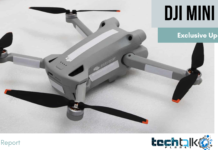
In a multi-year partnership, Qualcomm and Meta agreed to collaborate on customized Snapdragon XR CPUs for “other devices” and the “future roadmap of Quest goods,” in Mark Zuckerberg’s words.
The Quest 2 is powered by the Snapdragon XR2 processor, so in some respects the change is routine; yet, it may shed light on the concessions made by Meta as it struggles with declining sales and seeks to contain the skyrocketing costs of Mark’s metaverse project.
The Qualcomm agreement demonstrates that Meta’s next headsets, which are said to include a high-end headset codenamed Cambria and subsequently updated iterations of its less expensive Quest headset, won’t operate entirely on technology that Meta built.
This is true even though rival businesses like Apple, Amazon, and Google base their product decisions on niche chip designs like M2, Graviton3, and Tensor and Meta has a team working on doing the same since 2018. According to this press release, the chips will be “customised” suit Meta’s requirements. We don’t yet know how big of a gap between its “luxury” products and competing hardware that closely follows Qualcomm’s Snapdragon XR reference designs may be created.
According to a story from April, workers of Meta were collaborating with semiconductor fabs, the businesses that generate the actual chips, to create unique chips for the company’s upcoming augmented reality headgear. In the same month, The Information claimed that Meta had decided to utilise a Qualcomm processor for its second-generation Ray-Bay smart glasses rather than its own silicon because some of its efforts to develop proprietary chips were running into difficulties.
Other indications point to areas where Meta’s VR and AR goals have been curtailed. To power the Quest, the business now utilises Android, but it was apparently developing its own operating system for its virtual and augmented reality gadgets. The Information reported that it had ceased development on the XROS project, but the business reacted to that allegation by stating that it was “still working on a highly customised OS for our devices.” Mark Zuckerberg, CEO of Meta, had stated that a “microkernel-based operating system” will be released in 2021, however it hasn’t yet.
A firm under considerable strain serves as the background to all of this. For the first time, Meta’s revenue has decreased (partly due to Apple’s changes to the ways in which apps are permitted to track users), and Zuckerberg has explicitly stated his intentions to increase pressure on staff while acknowledging, “Some of you might simply state that this location is not for them, in my opinion. And I’m fine with that self-selection.” The corporation spends billions of dollars annually on the project, which includes AR and VR devices, and is losing money while doing so. At the same time, he is placing a huge wager on the metaverse.
Meta would probably want to play this high stakes game as close to the vest as she could. But for the time being, it appears that the devices users use to access Zuckerberg’s Metaverse will continue to be powered by other people’s processors (assuming they choose to do so, as opposed to merely playing Beat Saber).














































